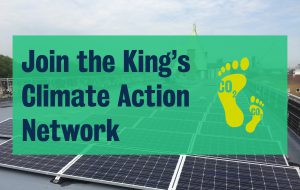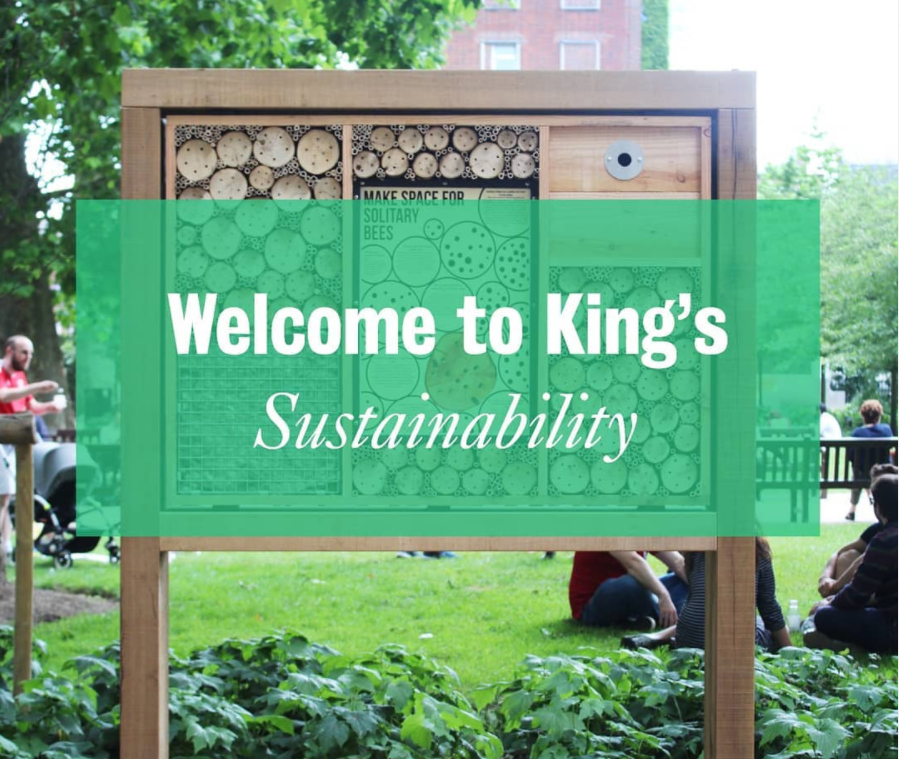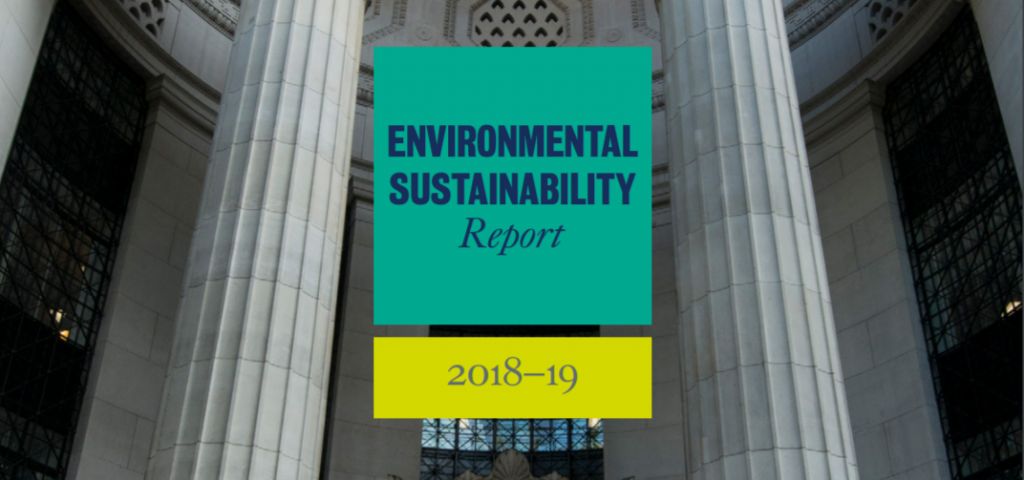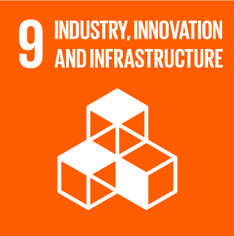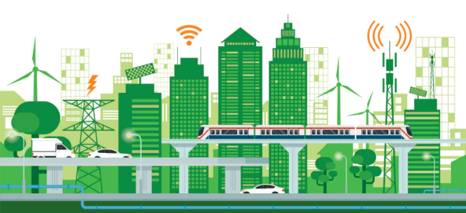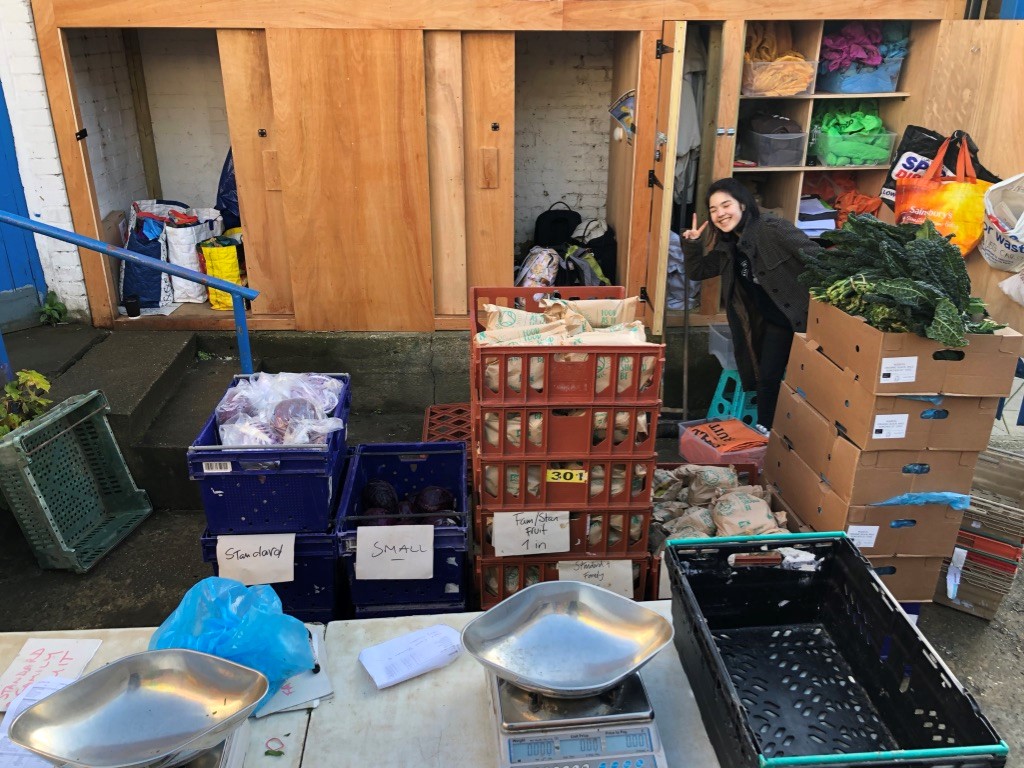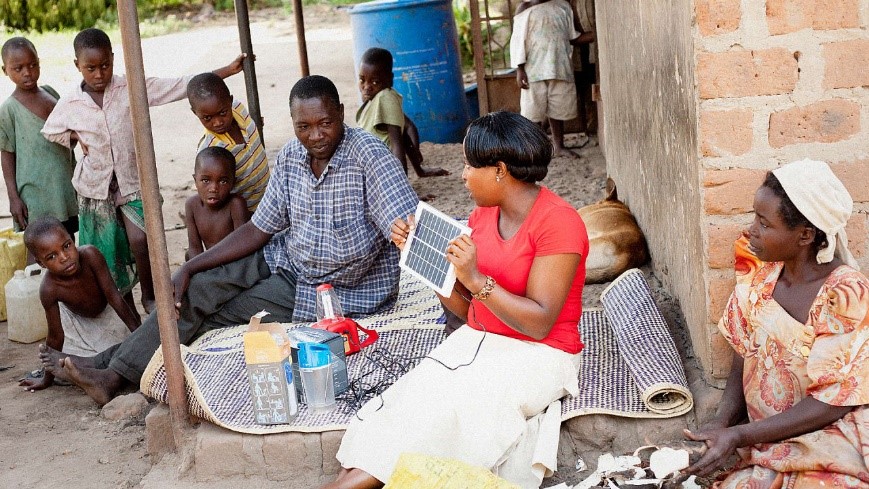King’s Environmental Management System (EMS): ISO14001.
In April 2020, King’s was successfully re-accredited with the Environmental Management System (EMS) ISO14001. If you’re wondering what that is exactly, it’s an internationally recognised accreditation scheme that acknowledges how efficiently and sustainably an organisation is managed.
The organisation in this instance is King’s College London and the efficient and sustainable management is managed by the Sustainability Team with actions carried out by the wider Estates and Facilities team.
The EMS works on the principal of ‘taking concerted action for continual improvement’ – so similar to making improvements with anything in life – King’s will gather baseline data of its operations, identify where improvements can be made and then take action to continually improve those operations.
Evidence of good environmental performance is documented for both hard services (maintenance of electrics, plumbing, HVAC, etc) and soft services (cleaning, catering, security etc). The EMS also looks at existing operational procedures, ensuring actions are carried out safely and efficiently, thereby avoiding any negative environmental impacts. Examples include the correct procedure for composting of cut grass and tree trimmings from the sports fields, a procedure for storing fuels (oils, diesel and petrol) and for monitoring their use and the storage and use of chemicals etc.
An EMS also looks at how we communicate with stakeholders, examines our plans and policies for leadership, planning, staff training and ensures King’s are at all times legally compliant with environmental legislation.
If you’re wondering how you can support King’s ongoing ISO14001 accreditation, becoming a Sustainability Champion is a great start! Being an active Sustainability Champion who contributes to existing sustainability projects will ensure the College is continually improving. The engagement hours of staff and student activities are reported in a bi-annual EMS review meeting, and quiet often, Sustainability Champion projects overlap with operational activities for clean air, carbon and energy reduction and community engagement. This is an ideal opportunity for student sustainability champions to get some ‘real world experience’ which of course can be added to their C.V.
Outside of being a Sustainability Champion, the most effective way of supporting King’s EMS is simply for individuals to live more sustainably. Every individual act of sustainability on campus has a direct impact on operations – particularly those associated with energy and waste. As energy consumption and waste remain the College’s top environmental negative aspects, all efforts made to reduce both will help King’s reach our target of being Net Zero Carbon by 2025.
Below are tips on how to live more sustainably.
- Become a Sustainability Champion.
- Reduce your intake of meat consumption – consider having it only once a week. Even better consider going vegan.
- Walk, Cycle safety where possible and of course, weather permitting.
- Dress for the weather; wear warmer layers during winter and cooler clothing during the summer.
- Switch off electrical devices when not in use and plug out chargers when not charging a device.
- Dispose of waste in the correct bin – either the food bin, recycling bin or general waste.
- Use reusable coffee cups when ordering coffee to go – it’s cheaper too and perfectly safe!
- Grow a plant(s) in your room /office/home.
- Join any of the various King’s sustainable societies – plenty of sustainability actions can be done online and outdoors obeying the ‘space and face rules’
- Shop sustainably – either from a charity shop or from an accredited ethical and sustainable company. Preferably a local one too.

